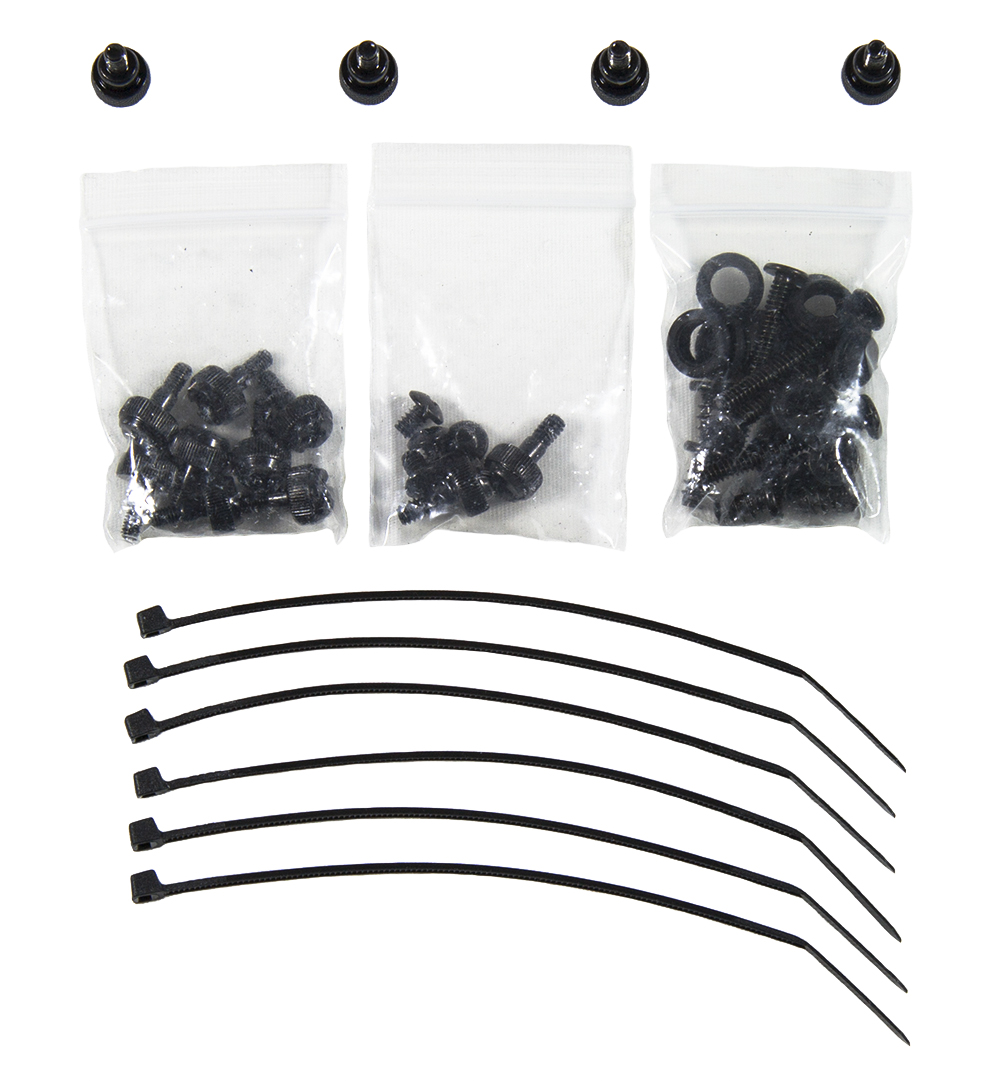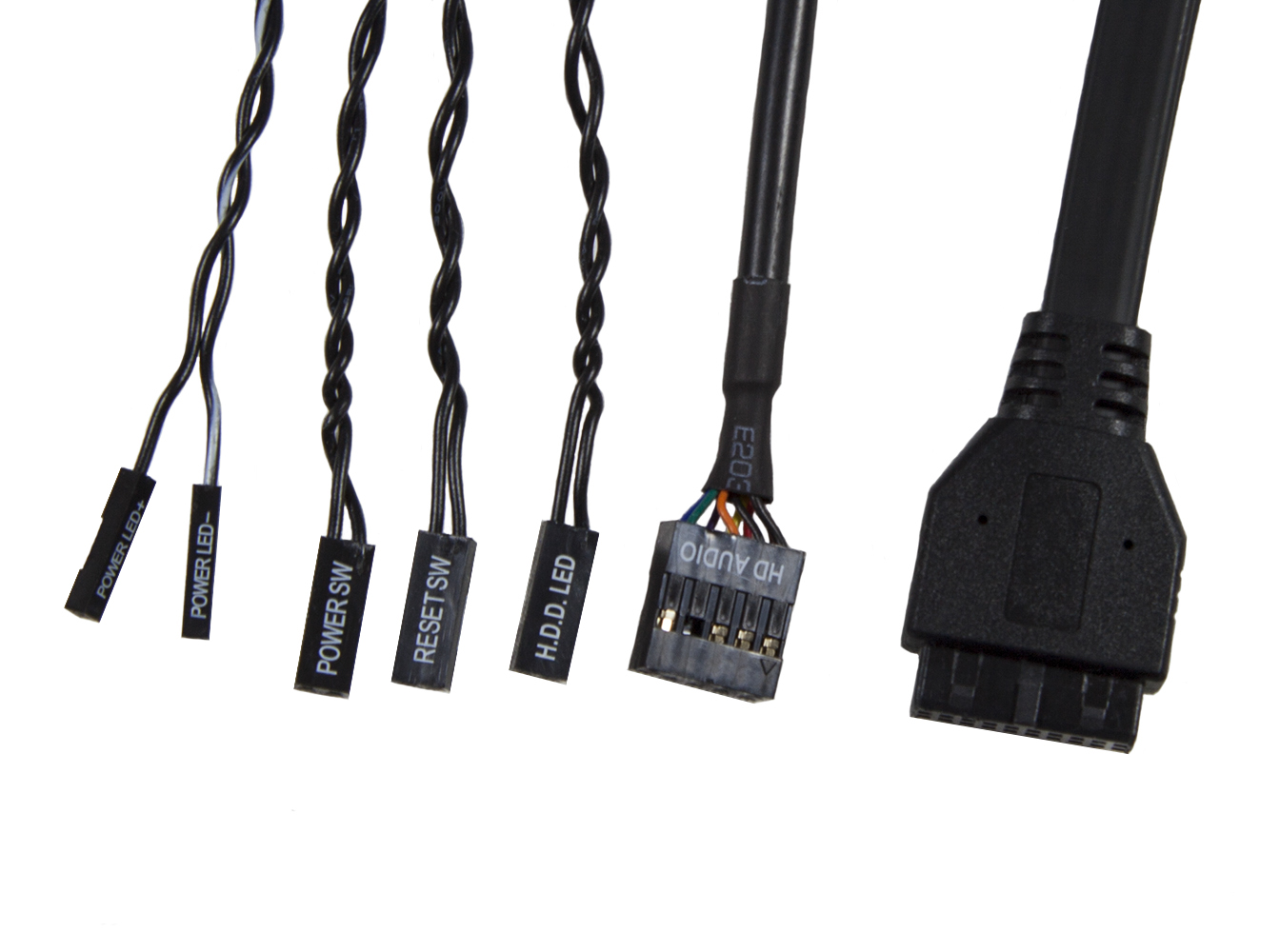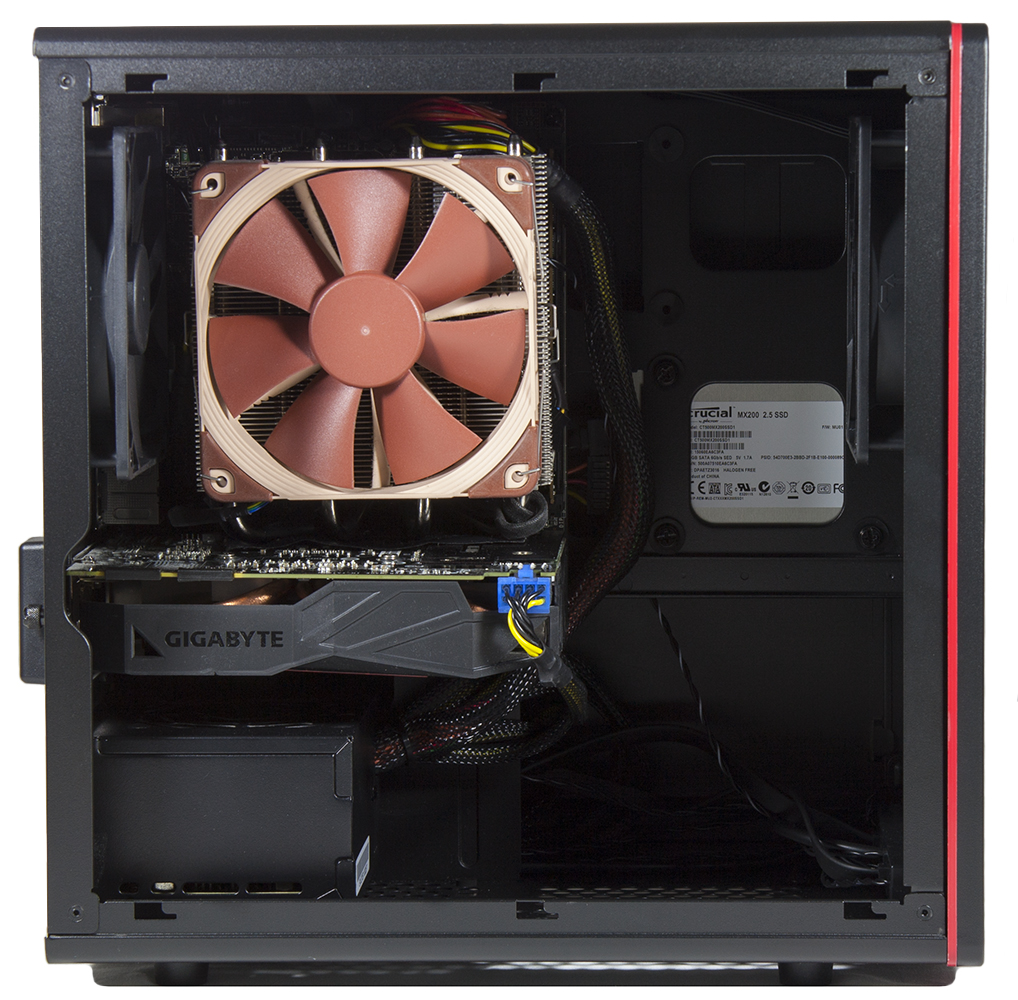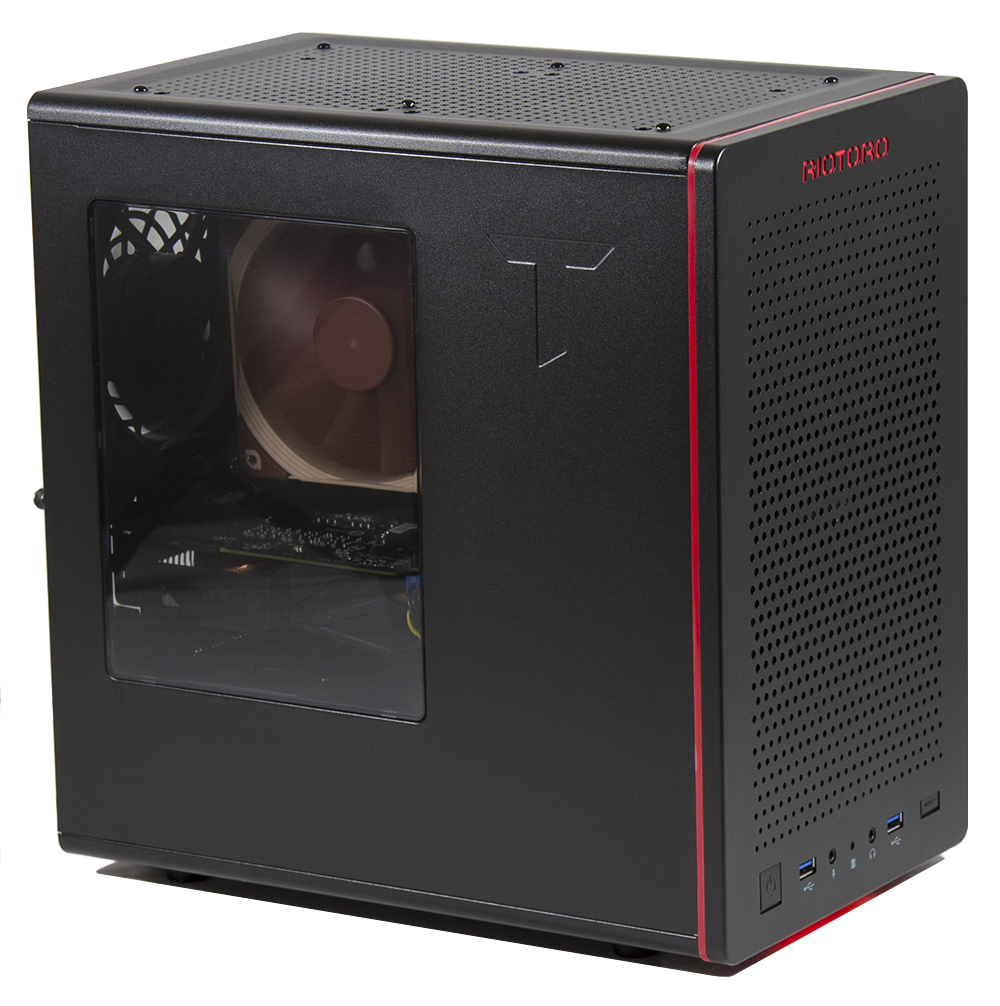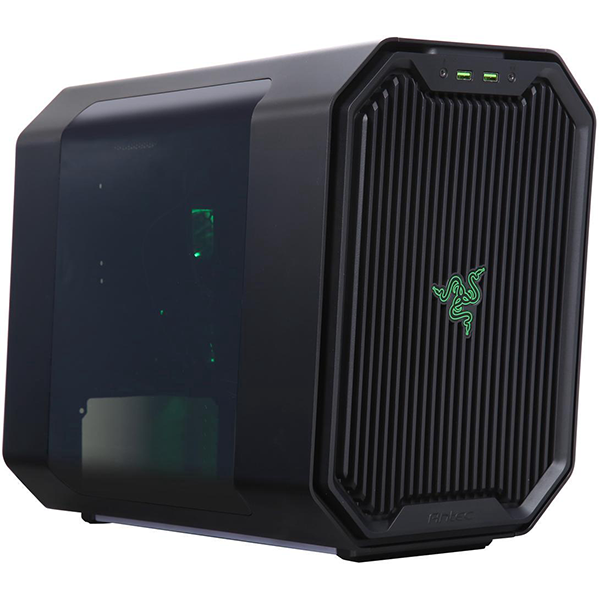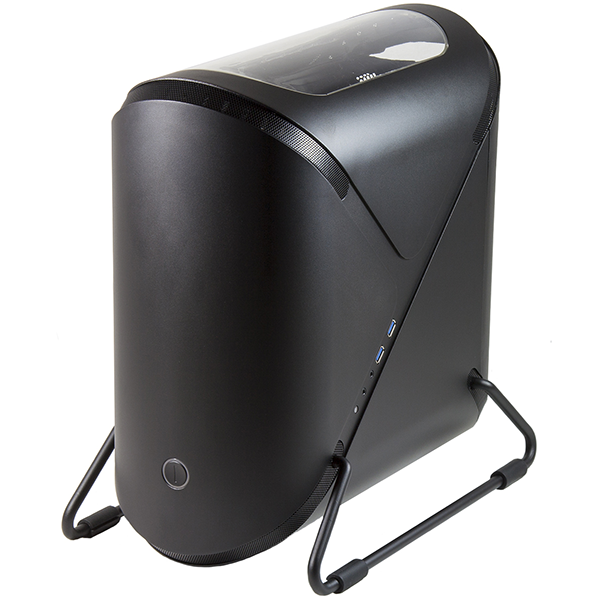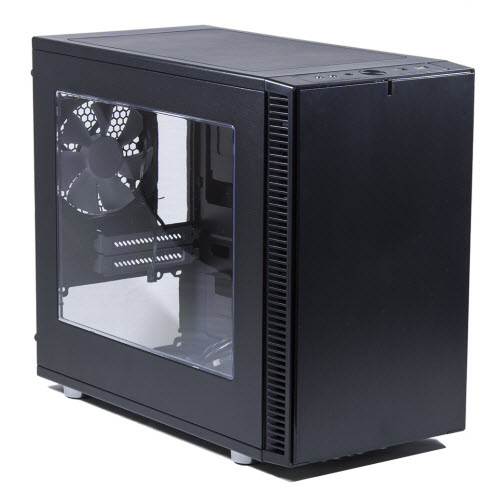Riotoro CR280 Mini ITX Case Review
Why you can trust Tom's Hardware
Installation & Configuration
The installation kit for the Riotoro CR280 is straightforward and includes motherboard screws, case fan screws, hard drive mounting screws, power supply screws, and more. Additionally it also comes with extra vibration dampeners for the hard drive mounts, as well as several cable ties for cable management, and several extra thumbscrews. Not pictured is a placard with a QR-code that links to Riotoro’s website where you can download the case’s instruction manual.
The CR280 comes with the standard front I/O cable assortment, including front panel power and switch cables, HD audio, and USB 3.0 cable. It appears that the underglow LED at the front of the case is small enough to receive all of its power from the motherboard’s power LED header.
Installation inside the CR280 is simple and quick. The cutouts in the motherboard tray and the numerous tie down points make cable management easy. Furthermore, unlike other cases we’ve tested, the CR280’s compact size means less wasted space at the end of the build. If we’d chosen a full-size graphics card and an ATX power supply, the rest of the available space would have been filled in nicely.
While it’s not exactly the panoramic view that you’d get from some of the newer cases on the market, the side window on the CR280 still provides a decent view into the case so you can show off your new build. The red underglow at the front of the case also adds a nice finishing touch and gives it a bit of the premium feel that accompanies more expensive cases.
Today’s review uses the same Mini-ITX reference platform as past reviews, with no changes to the standard hardware.
Noise is measured .5m from the case's front corner, on the side that opens. The numbers are corrected to the 1m industry standard—used by many loudspeaker and fan manufacturers—by subtracting six decibels.
Additionally, the test duration for today’s review was four hours at full load, and the ambient air temperature for the test was maintained at approximately 26°C (78.8°F).
Get Tom's Hardware's best news and in-depth reviews, straight to your inbox.
Comparison Products
Test Configuration
Drivers and Settings
| Test System Configuration | |
|---|---|
| Sound | Integrated HD Audio |
| Network | Integrated Gigabit Networking |
| Software | |
| Graphics | Nvidia GeForce 353.30 |
| Chipset | Intel INF 10.0.27 |
| Benchmark Configuration | |
|---|---|
| Prime95 v27.9 | 64-bit executable, Small FFTs, 4 threads |
| 3DMark 11 | Version: 1.0.3.0, Extreme Preset: Graphics Test 1, Looped |
| Real Temp 3.40 | Average of maximum core readings at full CPU load |
| Galaxy CM-140 SPL Meter | Tested at 1/2 m, corrected to 1 m (-6 dB), dBA weighting |
MORE: Best Cases
MORE: All Case Content
Current page: Installation & Configuration
Prev Page Features & Specifications Next Page Benchmarks & Final Analysis-
itsmedatguy great price, but I wish some more case manufacturers would build some higher end ITX cases that are actually this compact. Lian Li seems like the best bet, but I'm not interested in spending 2-300 on a caseReply -
DarkSable I mean, this is great value, and it's a good starting point for getting into small form factor builds. You're also right that going much smaller is going to require a more optimized layout, though that's really not a drawback aside from perhaps being slightly trickier to build in the first time.Reply
However, do bear in mind that when talking about SFF as an enthusiast niche, this case really isn't that small - 320mm x 203mm x 330mm works out to 21.5 liters. The widely available Silverstone Raven is just 14 liters, and there are specialty cases which use completely off-the-shelf parts to build gaming computers in a half to a third of this case. Heck, the S4 mini comes with a custom power supply, can fit up to an itx gtx 1080, and is less than a quarter of the volume of this case.
I mean, there are people designing cases to fit full ATX computers into ~23 liters.
I've said things like this before and gotten lukewarm responses, so let me just qualify this: Yes, those are pricy solutions, and yes, it's very niche... But someone interested in a case like this, who hasn't yet found the world of SFF computing, deserves to know about it. Surely it can't hurt to add two sentences to your article saying, "I know this case is tiny compared to a regular ITX chassis, but coming at it from the other perspective, 21.5 liters makes this a somewhat sizeable case for those niche enthusiasts who are into SFF computing."
(That's another thing I'd love to see; the dimensions are a start, but giving the volume in the stats would be super nice when talking about ITX cases. It's an easy calculation, and google will do it for you if you just type in the dimensions in mm multiplied by each other.) -
shrapnel_indie Reply20009227 said:(That's another thing I'd love to see; the dimensions are a start, but giving the volume in the stats would be super nice when talking about ITX cases. It's an easy calculation, and google will do it for you if you just type in the dimensions in mm multiplied by each other.)
For that to be most effective, one has to use internal measurements and not external, which is a little harder to find. -
shrapnel_indie One positive about the "paper wrap" for a color filter on the LEDs. If you don't want red, you can change it easy enough. the red strip around the front of the case is a different matter, but if you can live with that and different colors for the LEDs...Reply -
jmcgaw I'm guessing that this thing must take some sort of drives. Or does it? Additionally, a case of this configuration might attract someone who wants a small HTPC and for that most builders would like to have an optical drive up front. Was any of this addressed in the review? I didn't see it but maybe old age is taking its toll...Reply
